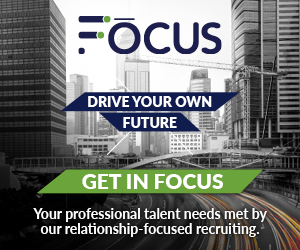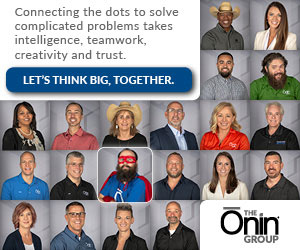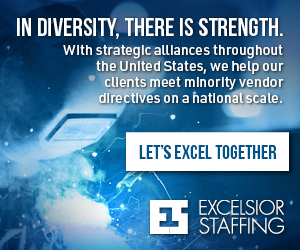Talent challenges are stunting business growth in the physical goods sector. According to a 2023 report from the UKG Workforce Institute:
- 76% of the 300 manufacturing HR leaders surveyed were having difficulty finding qualified talent.
- 66% reported increased hiring time.
- 62% experienced an increase in employee turnover.
- 57% reported an increase in unfilled jobs compared to the previous year.
Talent Challenges in Physical Goods Companies
Physical goods companies are having difficulty attracting and retaining talent. The biggest challenges include:
- Competition for talent: Skilled talent often is drawn to technology, healthcare, and other sectors that offer higher income and perceived better working conditions than the physical goods sector.
- Regulatory compliance: Maintaining compliance with labor laws and regulations while attracting talent can be challenging.
- Geographic challenges: Physical goods companies that are in areas with limited talent pools might need to offer remote work options or relocation packages to attract and retain talent.
- Environmental and sustainability concerns: Growing emphasis on environmental responsibility and sustainability in manufacturing can make talent attraction difficult. This is especially true for Gen Z, with the generation’s emphasis on aligning personal values with work.
- Changing workforce demographics: The increasing need for workforce diversity requires physical goods companies to modify their recruitment and retention methods to be more inclusive and appealing to talent.
- Negative perceptions of the sector: Companies must replace the misconceptions of low-paying, dirty, dangerous physical goods jobs by emphasizing modern, high-tech, well-compensated job opportunities.
- Automation concerns: Physical goods companies must invest in employee upskilling and reskilling to show talent they will not be replaced with automation and robots.
- Replacing talent exiting the workforce: As talent retires or leaves physical goods companies for other sectors, they must be replaced and transfer their knowledge to younger talent.
- Filling the skills gap: There is a shortage of talent with the skills required to stay current with rapid technological advancements.
- Retaining talent: Talent might feel undervalued and leave for other opportunities.
Opportunity Costs of Not Recruiting Talent in the Physical Goods Sector
Business growth in the physical goods sector typically requires recruiting talent to take on newly created roles. Although recruitment can be expensive, the costs of not recruiting talent can be higher.
A lack of talent recruitment during business growth can lead to lost sales and productivity. These losses can add up to more than the cost of a new employee’s salary. Also, this cost increases the longer you delay recruitment.
Tips to determine when to recruit talent
The best time to recruit talent for a new role typically is when your physical goods company requires additional support and has the budget to pay the new hire. The increased contributions should be significantly greater than the cost.
Alternatives to full-time talent
If you would rather not hire a full-time employee, you might consider offering an internship, part-time jobs, or flexible schedule job options. These opportunities would appeal to students who want industry experience and parents or seniors who want to earn income while fulfilling personal responsibilities.
Another alternative to hiring full-time talent is offering a temporary or contract role. These options might provide the support you need for business growth while staying within your budget.
Strengthening Engagement Supports Retention in the Physical Goods Sector
Employee engagement levels impact performance, productivity, and job satisfaction. These factors also affect collaboration, morale, and attraction and retention rates.
Engaged talent puts in additional effort, collaborates better, and creates higher-quality outcomes than disengaged talent. According to Gallup research, highly engaged teams demonstrate 23% higher profitability than less engaged teams.
Tips to elevate engagement
You can use these tips to elevate employee engagement:
- Emphasize diversity, equity, and inclusion (DEI) throughout your workforce.
- Prioritize transparency at all levels of the organization.
- Openly communicate business goals, strategies, and changes.
- Encourage leadership to model proper behaviors.
- Provide flexibility to support work-life integration.
- Encourage talent to use company-sponsored wellness benefits and programs.
- Emphasize collaboration among teams and departments.
- Offer opportunities for skill development and professional growth.
- Recognize and reward employee contributions and results.
- Provide surveys, suggestion boxes, and regular meetings to discuss and implement constructive feedback.
Create a net promoter score
A net promoter score (NPS) measures the likelihood of talent recommending your physical goods company to members of their network:
- HR representatives ask employees to use a scale of 1 to 10 to rate how likely they are to recommend their role to a colleague or friend.
- The responses are sorted into groups of promoters (9s and 10s), passives (7s and 8s), and detractors (all others).
- HR representatives ask the detractor group for constructive feedback to improve the workplace.
- The process is regularly repeated to improve the NPS.
Methods to Recruit and Retain Talent in the Physical Goods Sector
You can choose among the following methods to find and keep talent for your physical goods company:
- Partner with local educational institutions: Establish partnerships with local high schools, vocational programs, and community colleges to educate students on manufacturing careers within your organization. Also, offer apprenticeships and internships that can lead to full-time jobs.
- Prioritize diversity, equity, and inclusion: Show that talent with diverse backgrounds is welcome and valued within your workforce. Also, offer customized resources and support to help talent reach their professional goals within your organization. Additionally, provide employee resource groups (ERGs) and other resources to show each employee is a respected team member.
- Provide competitive compensation and benefits: Above-average salary or wages, sign-on bonuses, health insurance, a retirement plan with company match, generous paid time off (PTO), and professional development opportunities help attract and retain talent.
- Offer flexibility: Remote or hybrid work options and a flexible schedule support work-life integration. These factors are especially important for administrative and managerial roles.
- Leverage technology: Invest in the latest equipment and automation systems to elevate productivity and appeal to tech-savvy talent.
- Emphasize training and development opportunities: Upskill and reskill talent to support career advancement and retention. Internal recruitment lowers your hiring, onboarding, and training costs.
- Recognize and reward talent: Acknowledge each employee’s top contributions to your company. Include the steps taken, the results, and the impact on your organization. Also, provide a bonus, pay increase, or promotion when appropriate.
Find Talent to Support Business Growth
The Ōnin Group can provide you with qualified talent to help grow your business. Contact us to start the process today.






